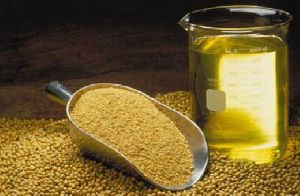
soy lecithin powder
80 Per Kilogram
100 Kilogram (MOQ)
soy lecithin lecithin is a generic term to designate any group of yellow-brownish fatty substances occurring in animal and plant tissues which are amphiphilic – they attract both water and fatty substances (and so are both hydrophilic and lipophilic), and are used for smoothing food textures, emulsifying, homogenizing liquid mixtures, and repelling sticking materials. application in the pharmaceutical industry, it acts as a wetting agent, stabilizing agent and a choline enrichment carrier, helps in emulsification and encapsulation, and is a good dispersing agent. It can be used in manufacture of intravenous fat infusions and for therapeutic use. in animal feed, it enriches fat and protein and improves pelletization. in the paint industry, it forms protective coatings for surfaces with painting and printing ink, has antioxidant properties, helps as a rust inhibitor, is a colour-intensifying agent, catalyst, conditioning aid modifier, and dispersing aid; it is a good stabilizing and suspending agent, emulsifier, and wetting agent, helps in maintaining uniform mixture of several pigments, helps in grinding of metal oxide pigments, is a spreading and mixing aid, prevents hard settling of pigments, eliminates foam in water-based paints, and helps in fast dispersion of latex-based paints. lecithin also may be used as a release agent for plastics, an antisludge additive in motor lubricants, an antigumming agent in gasoline, and an emulsifier, spreading agent, and antioxidant in textile, rubber, and other industries. food additive - the nontoxicity of lecithin leads to its use with food, as an additive or in food preparation. It is used commercially in foods requiring a natural emulsifier or lubricant. dietary supplement - because it contains phosphatidylcholines, lecithin is a source of choline, an essential nutrient.